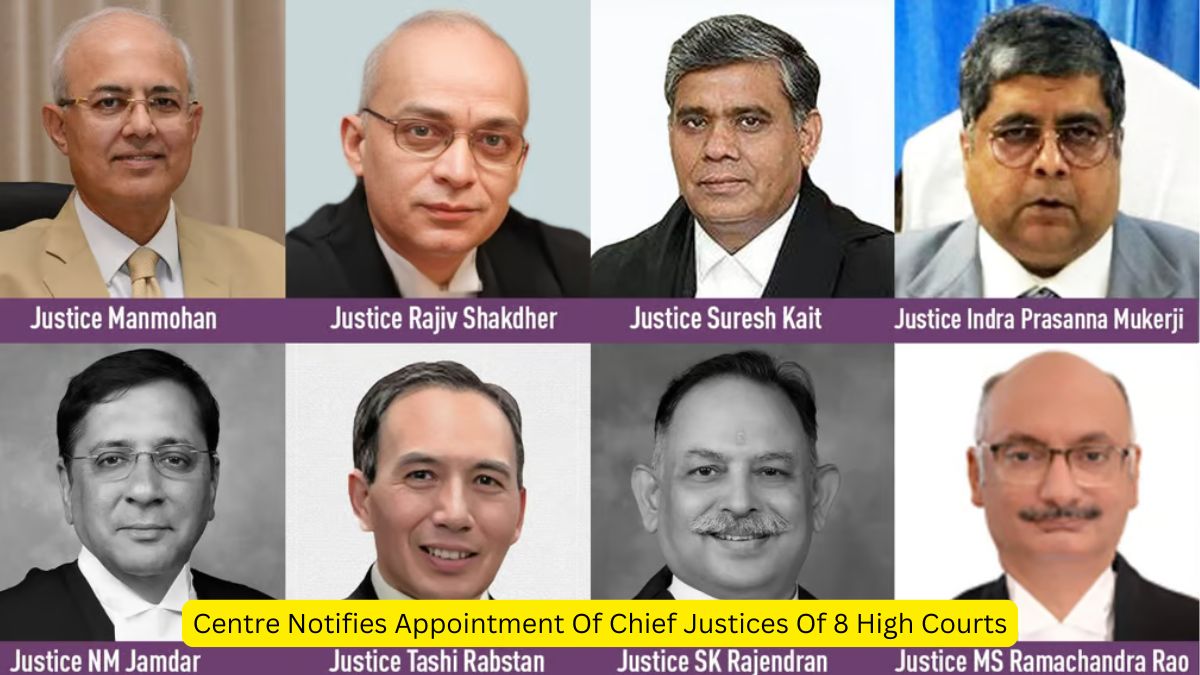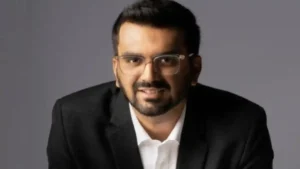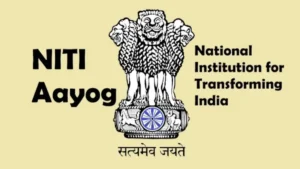The Central Government, through the Ministry of Law and Justice, notified the appointment of Chief Justices to eight High Courts to fill key judicial positions and ensure the smooth functioning of the judicial system in various states. Union Law Minister (Independent Charge) Arjun Ram Meghwal announced the appointment of Chief Justices to eight High Courts.
Background
The Supreme Court Collegium, in its recommendations regarding the appointment of Chief Justices, originally made proposals on July 11, 2023. However, on September 17, 2023, the Collegium altered some of its earlier recommendations concerning the appointment of Chief Justices to four High Courts.
New Appointments
- Justice Manmohan(presently Acting CJ of Delhi High Court) – Chief Justice of Delhi High Court.
- Justice Rajiv Shakdher (presently Judge of Delhi HC) – Chief Justice of Himachal Pradesh High Court.
- Justice Suresh Kumar Kait (Judge of Delhi HC) – Chief Justice of Madhya Pradesh High Court.
- 4. Justice Indra Prasanna Mukerji (Judge of Calcutta HC) – Chief Justice of Meghalaya High Court.
- Justice Nitin Madhukar Jamdar (Judge of Bombay HC) – Chief Justice of Kerala High Court.
- Justice Tashi Rabstan (Judge of J&K&L HC) – Chief Justice of Jammu & Kashmir & Ladakh High Court.
- Justice KR Shriram (Judge of Bombay HC) – Chief Justice of Madras High Court.
- Justice MS Ramachandra Rao (presently CJ of HP HC) – Chief Justice of Jharkhand High Court.
About Appointment process
What is the collegium system in the Indian judiciary?
Definition : The Collegium system is a system for the appointment and transfer of judges in the Supreme Court and High Court.
Evolve : It is not rooted in the Constitution. Instead, it has evolved through judgments of the Supreme Court.
SC Panel : Under the system, the Chief Justice of India (CJI), along with four senior-most Supreme Court judges, recommends the appointment and transfer of judges.
HC Panel : A High Court Collegium, meanwhile, is led by the incumbent Chief Justice and the two senior most judges of that court.
Government view : The government can also raise objections and seek clarifications regarding the Collegium’s choices, but if the Collegium reiterates the same names, the government is bound to appoint them to the post.
Appointment of HC Judges
- Article 217 of the Constitution : It states that the Judge of a High Court shall be appointed by the President in consultation with the Chief Justice of India (CJI), the Governor of the State.
- In the case of appointment of a Judge other than the Chief Justice, the Chief Justice of the High Court is consulted.
- Consultation Process: High Court judges are recommended by a Collegium comprising the CJI and two senior-most judges.
- The proposal, however, is initiated by the Chief Justice of the High Court concerned in consultation with two senior-most colleagues.
- The recommendation is sent to the Chief Minister, who advises the Governor to send the proposal to the Union Law Minister.
- The Chief Justice of the High Court is appointed as per the policy of having Chief Justices from outside the respective States.
- The Collegium takes the call on the elevation.




 Hindustan Oil Exploration Company Confir...
Hindustan Oil Exploration Company Confir...
 Slice Small Finance Bank Appoints Rajan ...
Slice Small Finance Bank Appoints Rajan ...
 Nidhi Chhibber Takes Charge as NITI Aayo...
Nidhi Chhibber Takes Charge as NITI Aayo...








